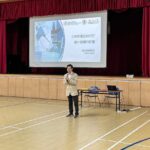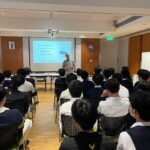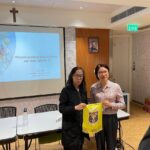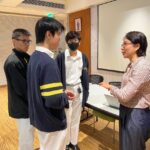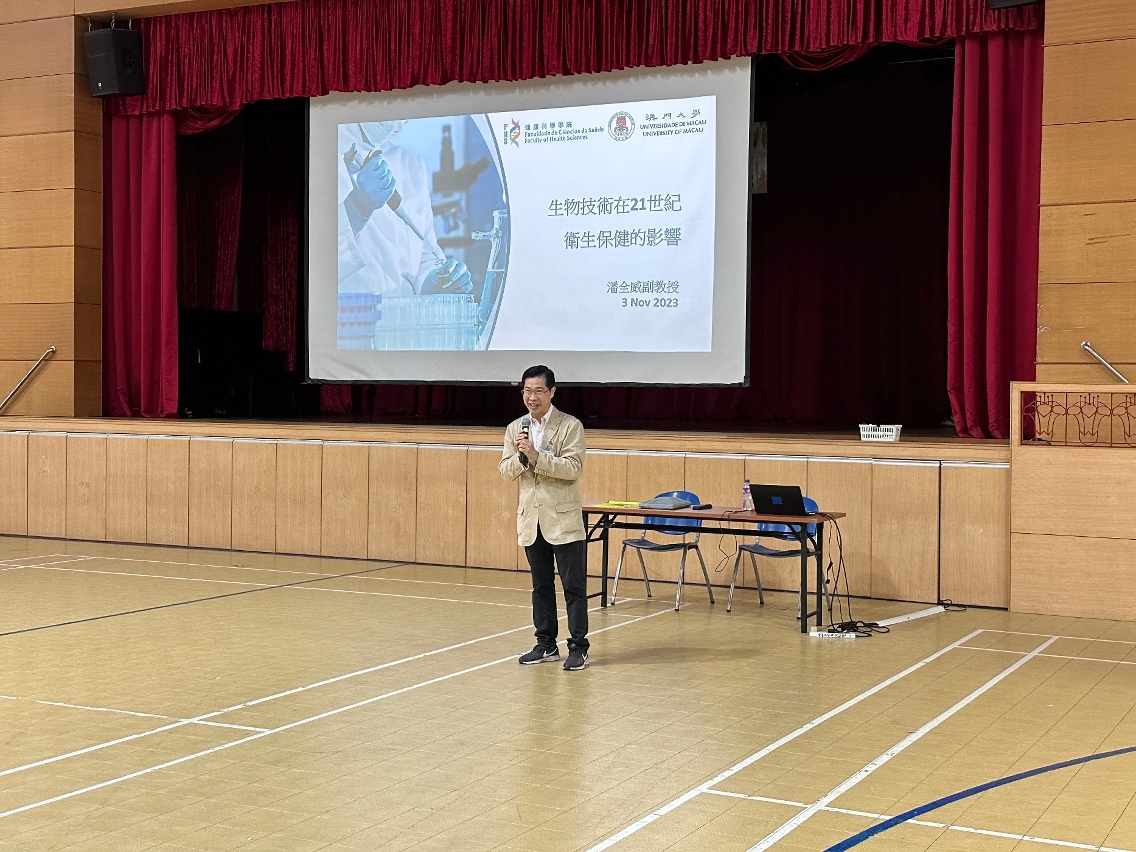 Poon Chuen Wai
Poon Chuen Wai
The Faculty of Health Sciences (FHS) of the University of Macau (UM) held science talks at Yuet Wah College with the aim of sparking secondary school students’ interest in scientific research and enabling them to gain in-depth knowledge of the latest biomedical technologies. Poon Chuen Wai, Lee Tsz On, and Xie Ruiyu, associate professors in FHS, gave science talks on cutting-edge biomedical technologies to more than 350 secondary school students. The students actively engaged in the Q&A session and interacted with the speakers.
Prof Poon gave a talk titled ‘The Impact of Biotechnology on Healthcare in the 21st Century’. He began his talk with the health problems of the Macao population and highlighted the important role of biomedical big data analysis in healthcare in the 21st century. He pointed out that as technology continues to advance, biotechnology and big data in health play an increasingly important role in the diagnosis, treatment, and prevention of diseases. He shared with the students some of the latest research findings and treatment strategies, and emphasised the impact of artificial intelligence on the future of healthcare.
Prof Lee delivered a talk titled ‘What is RNA Therapy? Its History and Infinite Future’. He first briefly introduced the principles and history of RNA therapy, before discussing its great potential in the field of cancer treatment. He also pointed out the challenges faced by current RNA therapy strategies, including how to effectively deliver RNA to specific targets and the safety concerns of long-term therapy. He added that these challenges require further extensive research by scientists. In addition, he encouraged students to consider pursuing further studies in related fields in the future.
In her talk titled ‘Diseases Grown in Petri Dishes—Can Stem Cells Do It’, Prof Xie discussed organoid, a preclinical model of human disease, and highlighted the unique role of stem cells in drug screening and therapy. She pointed out that stem cells can self-renew and differentiate into different cell types. These cells group together and are spatially organised into organ-like tissues to acquire the specific function of an organ. Stem cell-derived organoids have begun to be used in clinical practice as a novel means to identify targeted drugs and treat patients with rare mutations in cystic fibrosis. Through her insightful presentation, Prof Xie further talked about the potential breakthroughs that stem cell therapy may bring and underscored the expectations of the academic and medical community in this field.
FHS’s science talks aim to spark students’ interest in scientific research, enable them to have a deeper understanding of the latest technologies in biomedical sciences, and fuel their passion for science. In addition to regular science talks, the faculty also organises a series of science outreach activities for local secondary school students, including ‘The Pursuit of Research’, the Health Sciences Summer Camp, and a one-day camp for students under the Principals’ Recommended Admission Scheme. These activities are in line with FHS’ philosophy of pursuing sustainable development of scientific research, promoting the close integration of science popularisation and education, enhancing local secondary school students’ interest in science, fostering their passion for science, and guiding them to pursue their dreams as a scientist.


